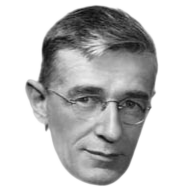agents are the wrong paradigm
this essay challenges the concept of "agents" as the dominant paradigm for understanding intelligence, arguing that while useful, it is also misleading. it explores philosophical perspectives from aristotle to searle, examining the historical roots of agency in human thought and decision-making. the discussion contrasts human intentionality with artificial agents, questioning whether ai systems truly embody agency or merely simulate it. through an analysis of if-then structures in knowledge, it critiques the limitations of agent-based models in capturing the full complexity of intelligence. ultimately, the piece invites readers to rethink agency as a framework for understanding both human and machine cognition.
this essay challenges the concept of "agents" as the dominant paradigm for understanding intelligence, arguing that while useful, it is also misleading. it explores philosophical perspectives from aristotle to searle, examining the historical roots of agency in human thought and decision-making. the discussion contrasts human intentionality with artificial agents, questioning whether ai systems truly embody agency or merely simulate it. through an analysis of if-then structures in knowledge, it critiques the limitations of agent-based models in capturing the full complexity of intelligence. ultimately, the piece invites readers to rethink agency as a framework for understanding both human and machine cognition.

this essay challenges the concept of "agents" as the dominant paradigm for understanding intelligence, arguing that while useful, it is also misleading. it explores philosophical perspectives from aristotle to searle, examining the historical roots of agency in human thought and decision-making. the discussion contrasts human intentionality with artificial agents, questioning whether ai systems truly embody agency or merely simulate it. through an analysis of if-then structures in knowledge, it critiques the limitations of agent-based models in capturing the full complexity of intelligence. ultimately, the piece invites readers to rethink agency as a framework for understanding both human and machine cognition.
